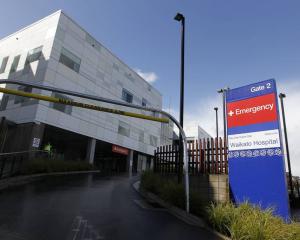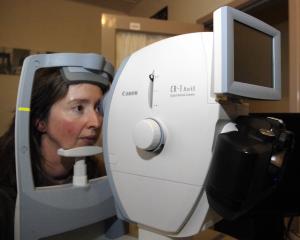No date has been set for the change yet, however, and the decision is subject to Southland board approval and board satisfaction with management suggestions about how it will be implemented.
During the lengthy discussion, chief executive Brian Rousseau and chairman both referred to the tough time ahead for the board financially and the decisions over services likely to be necessary to balance its books.
They described the decision to stop the funding as one of the easier ones the board was likely to make.
The subject arose in Mr Rousseau's report from a meeting of health managers from the South Island (apart from Nelson-Marlborough) recommending the board tell the Ministry of Health it would support a national policy stopping funding for private tests and that it would continue funding them until that was in place.
Board chairman Richard Thomson successfully proposed the board approve stopping payments without waiting for a national policy.
Supporting the recommendations as they stood, would be a "spineless kind of support".
"I have to decide whether up to a million dollars a year should be used to subsidise private specialist treatment or would it be better used to maintain access to public provision when we are unable to satisfy that need currently."
He did not believe stopping funding for private tests would increase de-mand on the public system.
He said he realised there was an argument around consistency.
"If not lab tests, then why medicines?"He did not have the answer to that, although he pointed out privately-sought radiography was paid for by patients.
Ms Rosson said she had misgivings about an ad hoc approach to the issue by boards.
Board member Peter Barron (by telephone from Thailand) said he was still implacably opposed to stopping funding.
If a decision had to be made it should be a political decision.
The board should see people choosing to seek private elective surgery as something to its financial advantage.
Those who voted for Mr Thomson's motion to stop funding the tests were Mr Potiki, Susan Johnstone, Mrs Algar, Louise Carr.
Against: Mr Barron, Ms Rosson, Mrs Medlicott.
Dr Malcolm Macpherson and Errol Millar declared possible conflicts of interest and did not participate in the discussion.
Advertisement












